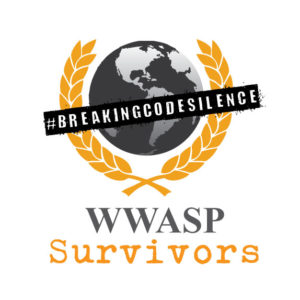By TIM WEINER
Published: May 27, 2003
OROTINA, Costa Rica, May 25 — A torrent of teenage rage, hard and fast as the tropical rain on this Pacific coast, washed away the Academy at Dundee Ranch this weekend.
Dundee Ranch, the latest foreign outpost in a far-flung affiliation of behavior modification programs that promises to convert troubled American teenagers into straight arrows, lasted 19 months before the students rose up in revolt and overthrew their masters.
The rebellion erupted after Costa Rican officials visited the ranch — an old hotel on a rutted red-dirt road — and told the children of their rights after complaints about the program from a former director.
“They told us you have the right to speak, you have the right to speak to your parents, you have the right to leave if you feel you’ve been mistreated,” said Hugh Maxwell, 17, of Rhode Island. “Kids heard that and they started running for the door. There was elation, cheering and clapping and chaos. People were crying.”
Adults beat some of the children to quell the uprising, according to six people present. The academy’s owner, Narvin Lichfield, was jailed for 30 hours, may face criminal charges and has been ordered by a judge to remain in Costa Rica. Four staff members feared by the children are being deported to Jamaica, government officials said. Most of the children are going home, many to an uncertain future.
About 30 youths still remain at the academy. Two of them, Sean McDevitt of North Carolina and David Saczawl of New Jersey, sat in the cafeteria and joked about a fitting sentence for Mr. Lichfield, should he be tried on human rights charges, as threatened by a local prosecutor.
“Four years here would be about right,” said Sean, who has spent the past 11 months at the academy.
Dundee Ranch’s base lay in the canyonlands of southern Utah, in a business called the World Wide Association of Specialty Programs and Schools, or Wwasps.
Wwasps, based in St. George, Utah, bills itself as the fastest-growing enterprise aimed at defiant and delinquent children. Some 2,200 children in 11 affiliated programs in the United States and abroad are charged between $30,000 to $50,000 in tuition and fees, generating yearly revenues of $60 million or more.
Wwasps disclaims ownership or direction of these affiliated programs. But Craig Barlow, a Utah State prosecutor who brought a child abuse charge against the director of one Wwasps-affiliated school, says they are “a lateral arabesque with no hub except for these connections in Utah.” He cites a network of interlocking directorships based on blood and business ties.
Narvin Lichfield is a brother of Wwasps’ founder. He started a Wwasps program in South Carolina, Carolina Springs Academy, then moved to Dundee Ranch, which opened in 2001.
Parents who sent their children to Wwasps-affiliated programs — including Dundee Ranch; Casa by the Sea, in Ensenada, Mexico; and Tranquility Bay in St. Elizabeth, Jamaica — suggest the programs meet a deep need. In many cases, a bitter divorce led to despair over a child who turned defiant. Schools, courts, and public health systems proved unable to cope.
Searching the Internet, parents found the Wwasps programs. A call to a toll-free number produced sales pitches, and offers of financial assistance helped to sell the programs, which are booming.
Dundee Ranch’s enrollment increased 30 percent over the past year. According to students, as many as 15 children slept in a single room.
According to students, Narvin Lichfield was a fleeting if unforgettable presence.
Corey Martin, 17, who left Dundee Ranch in July, described Mr. Lichfield in a telephone interview last week as “a used-car salesman.” Hugh Maxwell said: “There are people there who care about the kids. Narvin is not one of them. He’s in it for the money.”
Students said Mr. Lichfield set up a system typical of Wwasps programs. Children were divided into six levels, the lower ones forbidden to speak freely or raise their eyes, the higher ones free to discipline and punish inferiors. A muscular cadre of minimum-wage staff members enforced the system. Communication between parents and children was barred or closely edited. Parents were told that complaints from children were manipulative lies.
Academy directors came and went. Amberly Knight held the job from March to August 2002. She resigned, and early in March this year wrote to the Costa Rican minister for child welfare, saying that “Dundee Ranch Academy should not be allowed to operate because it is poorly managed, takes financial advantage of parents in crisis, and puts teens in physical and emotional risk.”
Two months later, Ms. Knight’s complaint led to a confrontation. Representatives of Costa Rica’s child-welfare agency — known as PANI, its Spanish-language initials — arrived at Dundee Ranch on May 20, backed by the police. Events were described by six witnesses, including Joel Snyder, 17, of Wisconsin, in an open letter to Dundee Ranch parents.
“When PANI told some kids they had the right to speak to their parents and the right to private mail or even not to be held in that country, kids ran for freedom,” his account reads. Other children confirm that between 30 and 50 of them revolted, some fleeing on foot, heading for the hills or seeking a beachhead on the Pacific Ocean, 20 miles away.
Joel did not run. But he refused to sign a statement immediately produced by the Dundee Ranch staff saying he had been well treated. “I was immediately forced into a High Impact facility,” he wrote. He tried to leave, he wrote, and was beaten with a stick by the staff.
A 14-year-old girl at the academy, whose mother asked that her name be withheld, picked up the account.
“The police said those who wanted to leave could leave and we could talk to our parents,” she said in an interview. “The staff members tried to pull all the kids back to the dorms. It was chaotic. We were excited — `Oh my God, I’m going home.’ We thought the school was going to shut down right there. Some of the kids started walking out.”
She said that staff members started kicking, hitting and choking children to stop them from leaving, and that the punishment continued for hours after the Costa Rican officials left. “We wanted to talk to a higher power, the U.S. Embassy, but they would not let us,” she said. Her mother, informed of the chaos through a parents’ grapevine, reached the embassy, which sent a consular services officer, who helped reunite mother and daughter.
On Thursday afternoon, Mr. Lichfield regrouped. “He called every kid into the cafeteria and said, `Program’s back in order. No one’s leaving. Stop acting up,’ and that lit a fire,” Hugh Maxwell said. “It was a full-fledged riot.”
Then, that night, “Narvin got arrested and all hell broke loose,” as one parent who was visiting at the time described the scene. Mr. Lichfield was detained on Thursday night on a local prosecutor’s complaints of physical and psychological abuse. The police seized the program’s computers and files.
In Utah, Ken Kay, president of Wwasps, sought to calm parents and transfer children to Wwasps-affiliated programs inside and outside the United States. But over the weekend, even parents who passionately believe in the program found flights home for their children.
Mr. Kay kept working to persuade them to stay, saying in a weekend e-mail message — a copy of which was made available by parents — that programs in New York, Montana and Jamaica “would be happy to work with your child.”
“I feel bad that you don’t recognize that Narvin was trying to do what he could for your children,” Mr. Kay wrote.
“I can’t say the program did no good,” said Dustin Sanow, 17, of Mississippi, “but it’s pretty traumatic. Parents have no idea what’s going on. I feel they manipulated my folks.”
His mother, Anita Sanow, an Air Force major, did not find out that Dundee Ranch had collapsed until Sunday afternoon. “I feel that people were less than honest with me about the program,” she said. “I feel they misrepresented things. I feel like the dollar mattered more than the kids.”
Dustin’s friend Hugh Maxwell said: “I support the program. It provides you with a chance to change. But it deprives you of so much, too. It’s a last resort. It’s desperation.”
Original Article: http://www.nytimes.com/2003/05/27/international/americas/27COST.html











